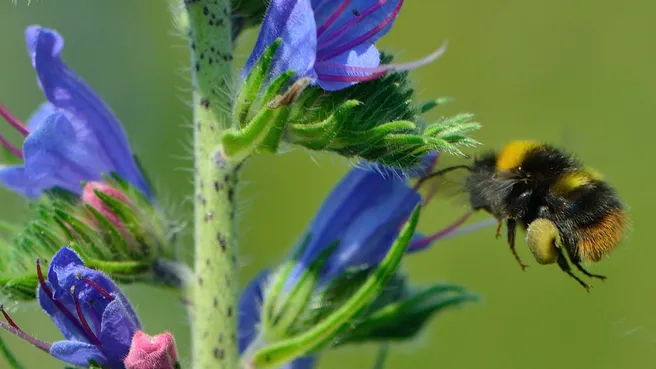The auditorium doesn’t need any prior knowledge, and this is the chance to meet the people responsible for the future of science (and have a pint with them). The festival runs over a few days in May every year. After two years in which the events were held online, this year they are again possible in presence. The lectures will be held in English.
Lecture: Farming the city: benefits for people, plants, and animals
In the coming decades, more than two-thirds of the world's population will live in urban regions. Urbanization brings loss of green space, public health issues, harm to the coexistence of people and nature, but also potential and new perspectives for nature conservation and nature connection. „How exactly can urban agriculture contribute to the conservation of biodiversity and to human health? I’ll discuss ecological and social drivers behind how ecosystems can provide habitat for plant and animal species, and also a place for people to relax and unwind, reconnecting with food and nature,” says Monika Egerer, Professor of Urban Productive Ecosystems at the TUM School of Life Sciences. Her Lecture will be on May 9 (6:30pm - 8:30pm)at Alte Utting, Lagerhausstraße 15, 81371 Munich. See here for tickets: https://pintofscience.de/event/how-to-feed-humans-and-chickens
Lecture: Nature's best - why looking at organisms can improve our technology
Survival in nature is a tough business - regardless of whether you are a human, a rabbit or a sunflower. The basic idea of biomimetics is that evolution has come up with many solutions to problems that organisms face in nature, and which can also help us to better deal with challenges we have in our technological world. „Less energy consumption? Better solar panels? Intelligent routing of Amazon delivery trucks? We will look at various fields where technology has already profited from biomimetic approaches, and others where such profit might lie in the future, “ says Harald Luksch, Professor of Zoology at the TUM School of Life Sciences. His lecture will be on May 10 (7pm - 9pm) at Stragula, Bergmannstraße 66, 80339 Munich. Tickets are available here: https://pintofscience.de/event/modern-armor
Lecture: Healthy bees need diverse flowers
Like many other insects, bee populations are in decline and several species are disappearing worldwide as a consequence of human activities. “In fact, the diversity of wild bees decreases with decreasing flowering plant diversity. In our projects we try to understand how changes in the diversity of flowering plant communities affect wild bees. One aim is to develop targeted measures to support bee health by providing crucial resources, especially with regard to their specific nutritional needs,” says Dr. Alejandra Parreño, Postdoctoral Researcher in the Plant-Insect Interactions Group at the TUM School of Life Sciences. Her lecture will be on May 11 (7pm - 9pm) at Gans am Wasser, Siegenburger Str. 41, 81373 Munich. Tickets are available here: https://pintofscience.de/event/beeing-sustainable
Editing:
Dr. Katharina Baumeister
TUM Corporate Communication Center
Press and Public Relations
